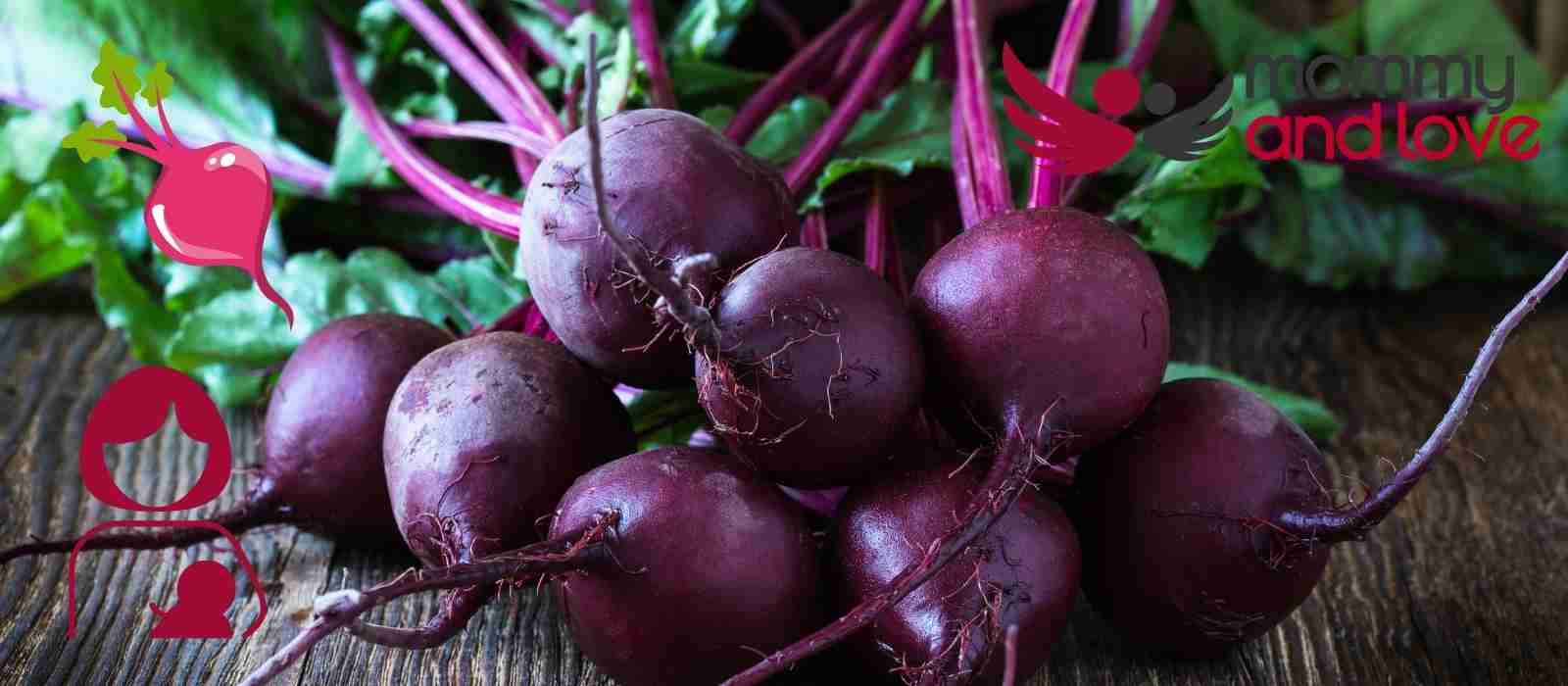When you’re breastfeeding, it can be hard to know what’s safe and what’s not. Some foods are considered no-nos because they can pass through into your breastmilk and make your baby sick.
But what about beetroot? We take a look at the truth about beetroot while nursing. We’ll discuss the benefits of beetroot, as well as the potential risks. Read on to find out!
Is It Safe to Eat Beetroot While Breastfeeding?
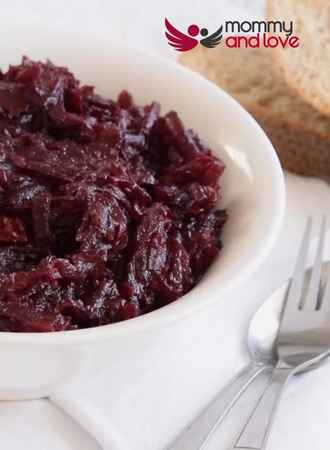
Yes and no. Beetroots are a great source of nutrients and minerals, including iron, folate, and magnesium. They’re also a good source of fiber.
However, beetroots can also contain nitrates especially when in raw form. When these nitrates are broken down in the body, they can form nitrites.
Nitrites can be harmful to babies, as they can cause a condition called methemoglobinemia. This condition can lead to low levels of oxygen in the blood.
So, while this red vegetable is generally considered safe, you should be aware of the potential risks.
If you’re concerned about consuming nitrates that can pass through your breastmilk, you can speak to your healthcare provider about whether or not it’s safe for you to eat beetroot.
What Are the Benefits of Beetroot for Breastfeeding Mothers?
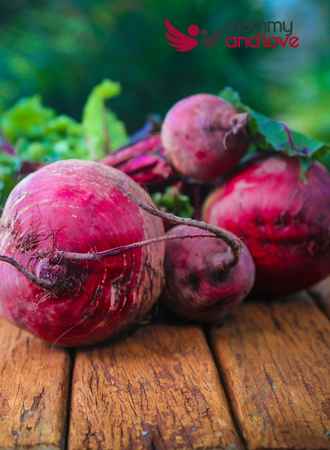
So, what are the benefits of beetroot for nursing mothers? Here are a few:
- Beetroots are a good source of vitamins and minerals, including Vitamin C, iron, folate, and magnesium.
- They’re also a good source of fiber.
- Beetroots can help to increase milk production.
- These vegetables are a good source of antioxidants, which can help to protect your baby from the harmful effects of free radicals.
- Beetroots and beets are low in calories and carbohydrates, making these vegetables a good choice for lactating mothers who are trying to lose weight.
- And finally, eating fresh beetroot can help to improve your overall health.
Are There Any Risks of Beetroot While Nursing?

Yes, there are potential risks of beetroot. As we mentioned earlier, beetroots can contain nitrates. When these nitrates are broken down in the body, they can form nitrites.
Nitrites can be harmful to babies, as they can cause a condition called methemoglobinemia. This condition can lead to low levels of oxygen in the blood.
How Much Beetroot Can I Eat While Breastfeeding?
If you choose to consume beetroot, it’s important to limit your intake. The American Academy of Pediatrics recommends that breastfeeding mothers consume no more than one serving of nitrate-rich foods per day. A serving of beetroot is about ½ cup.
Will Eating Beetroot Influence Breast Milk or the Color of My Baby’s Poop?

It’s unlikely that beetroot will influence the color of your breast milk or your baby’s poop.
However, if you notice that your baby’s poop is red or dark purple, it could be a sign that they’re consuming too many nitrates.
Other vegetables that are thought to change the color of breastmilk or make a mother’s milk pink include carrots, squash and pumpkin. If you’re concerned, speak to your healthcare provider.
Does Beetroot Affect Breast Milk Supply?
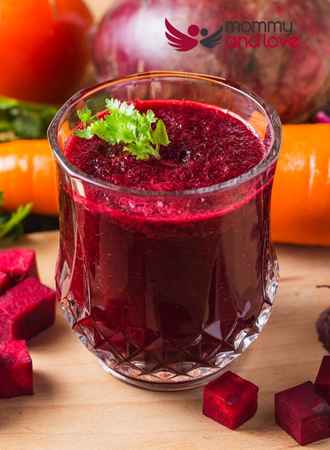
You may have heard that eating certain foods can help increase milk supply. But what about foods that might have the opposite effect?
Does eating beetroot or drinking beet juice decrease breastmilk production?
There is no scientific evidence to support this claim. These vegetables don’t give lactating women more milk.
Most mothers are in search of what is called a galactagogue which is a vegetable that promotes lactation. This can help especially if the baby demands more milk than what her body produces.
However, consuming anything in large amounts does not increase the milk supply. This is because your body needs extra energy to produce breast milk, and eating or drinking too much can make you feel tired.
Can a Baby Be Allergic to Beetroot?
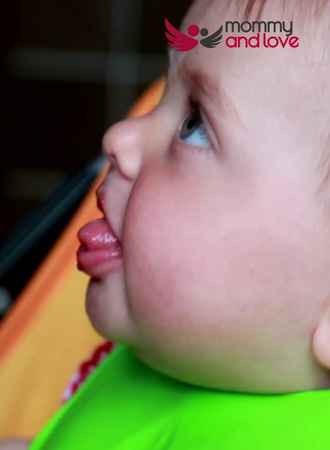
It’s possible but rare. If your child is allergic to beetroot, they may experience symptoms such as hives, wheezing, or vomiting.
If you think your baby may be allergic to beetroot from your breastmilk, speak to your healthcare provider.
Can I Use Beetroot as a Natural Dye for Making Homemade Baby Food?
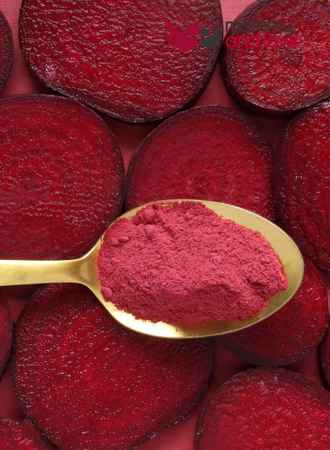
Yes, you can use beetroot juice as a natural dye for making homemade baby foods.
To do so, simply add cooked, peeled, and diced beetroot to your baby’s foods. You can also puree-cooked beetroot and add it to other foods.
Start with small amounts of juice and increase gradually as needed. If you’re concerned about your baby consuming too many nitrates, you can speak to your healthcare provider about it.
The Bottom Line
Overall, beetroot while breastfeeding is considered safe. However, if you’re concerned about the nitrates in beetroots, you can speak to your healthcare provider about whether or not they’re safe for you.
Beetroots are a great source of vitamins and minerals, so they can be a healthy addition to your diet. Just be sure to watch out for the potential risks!

